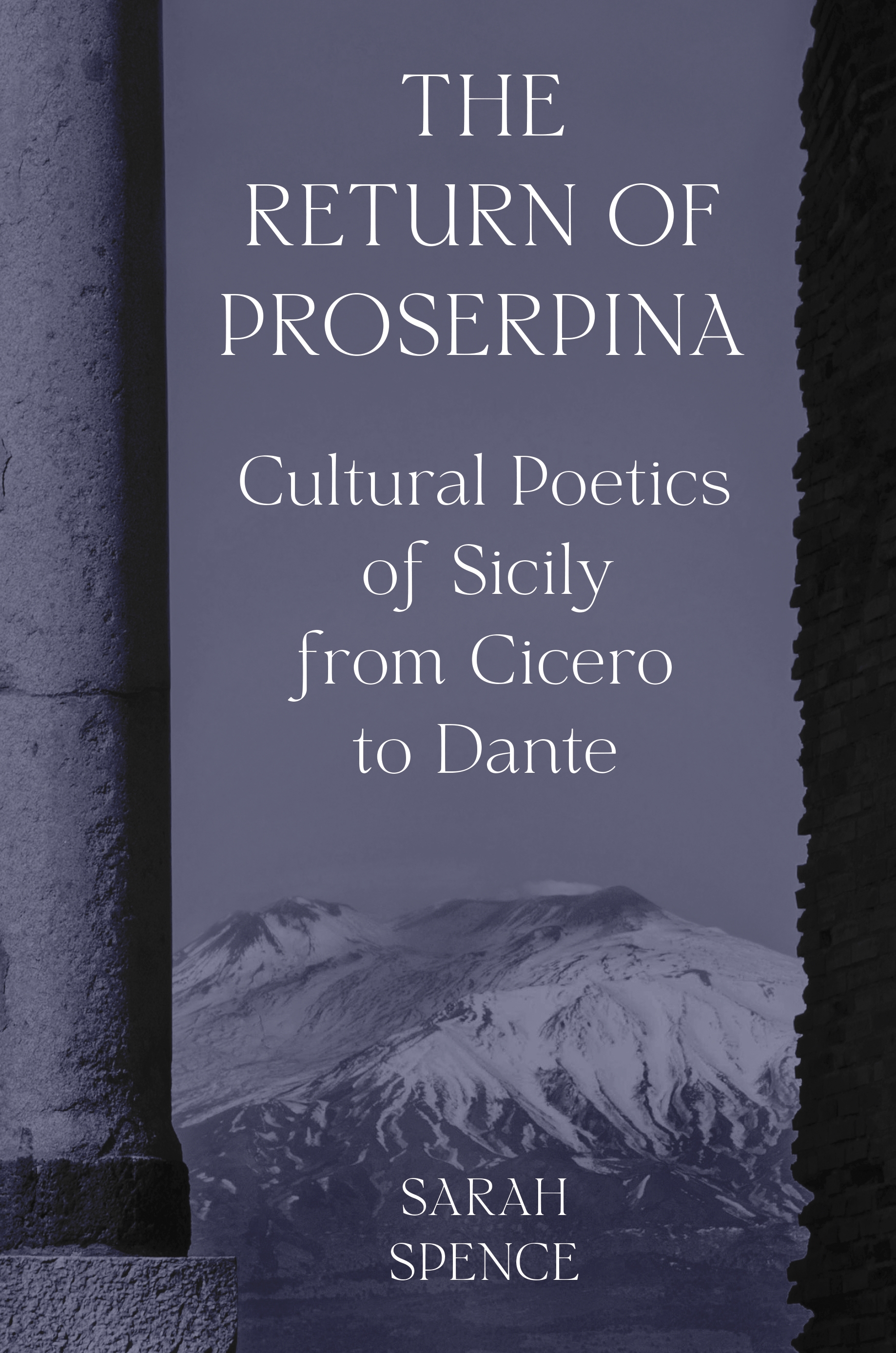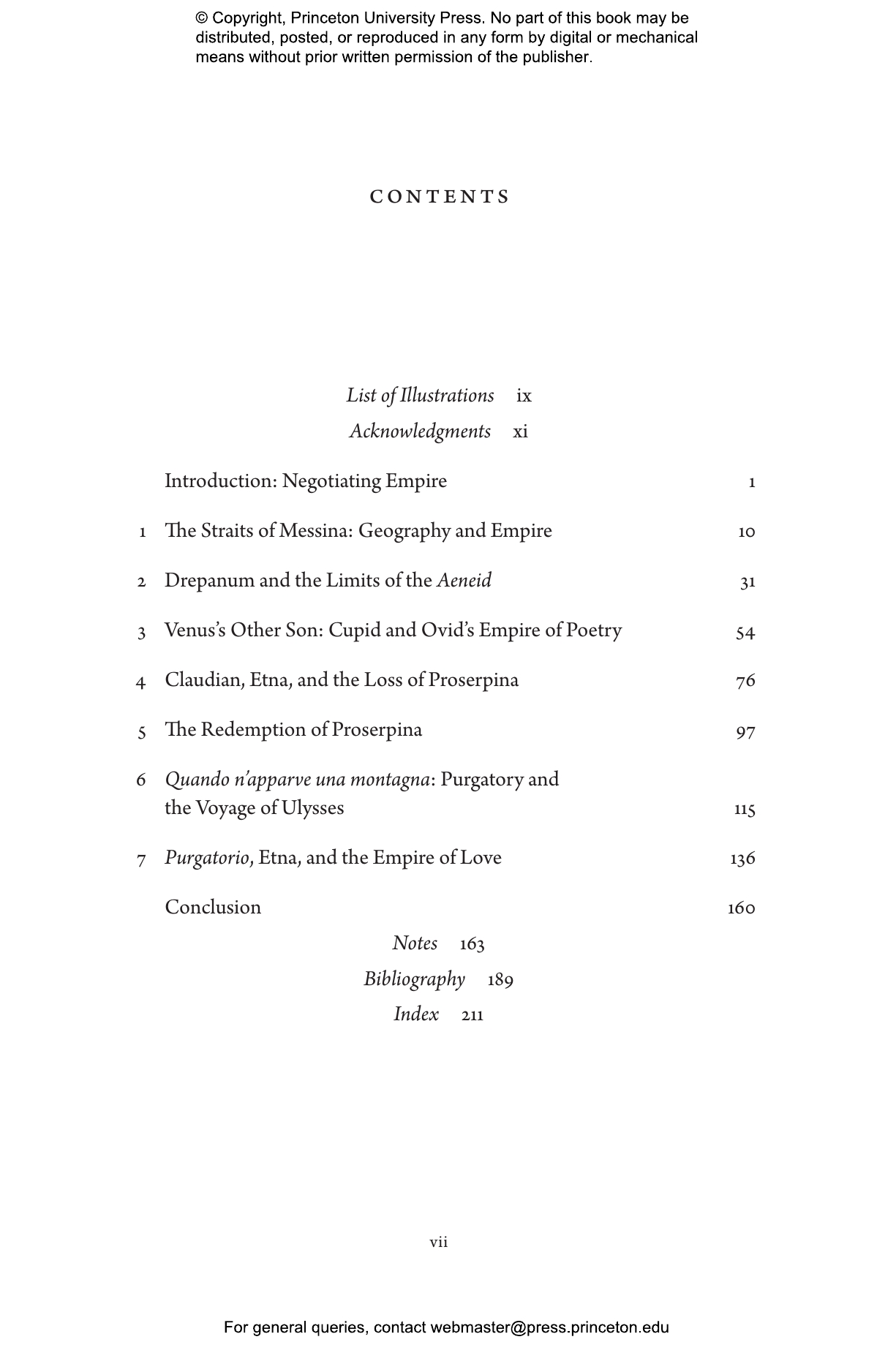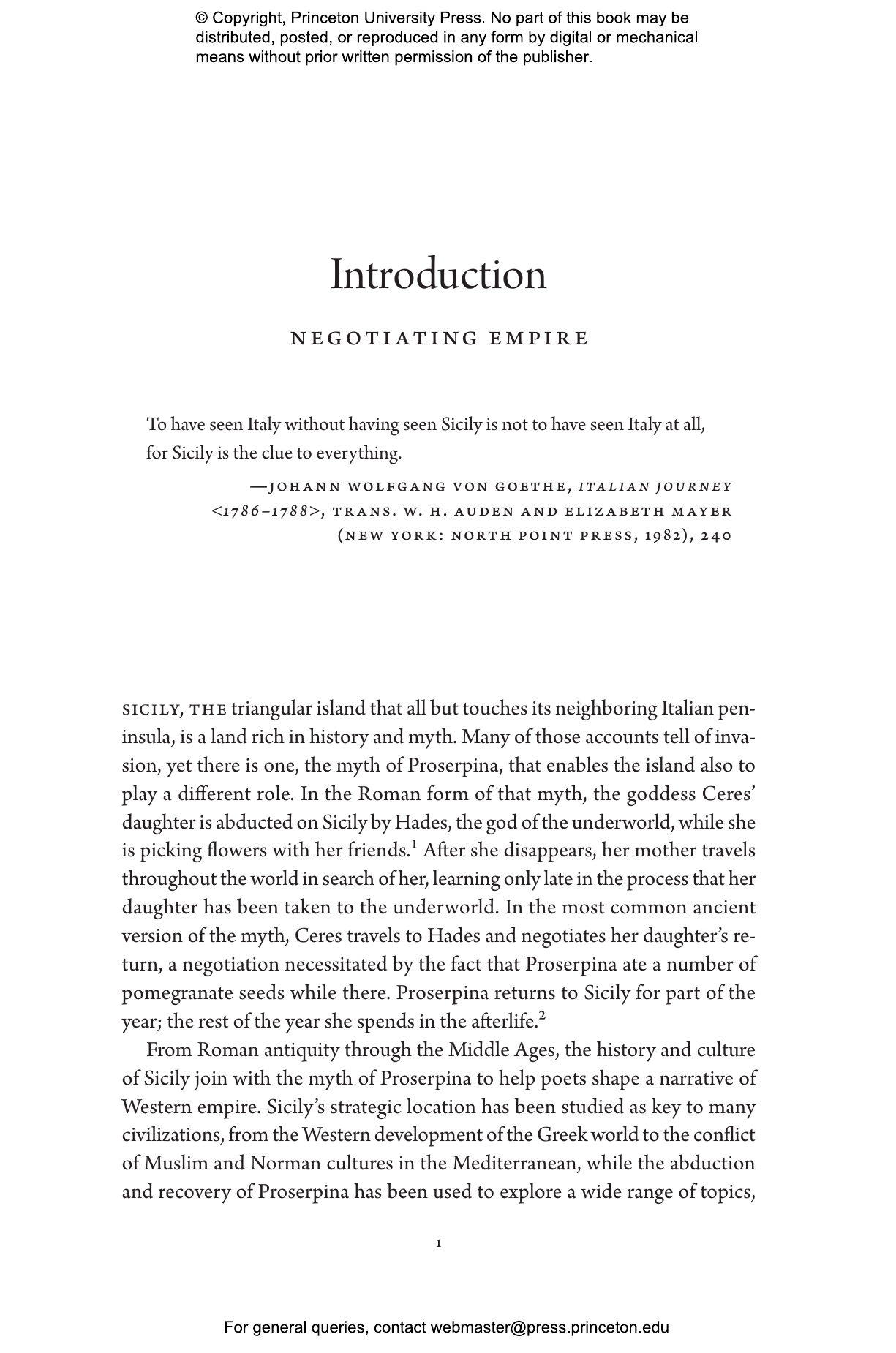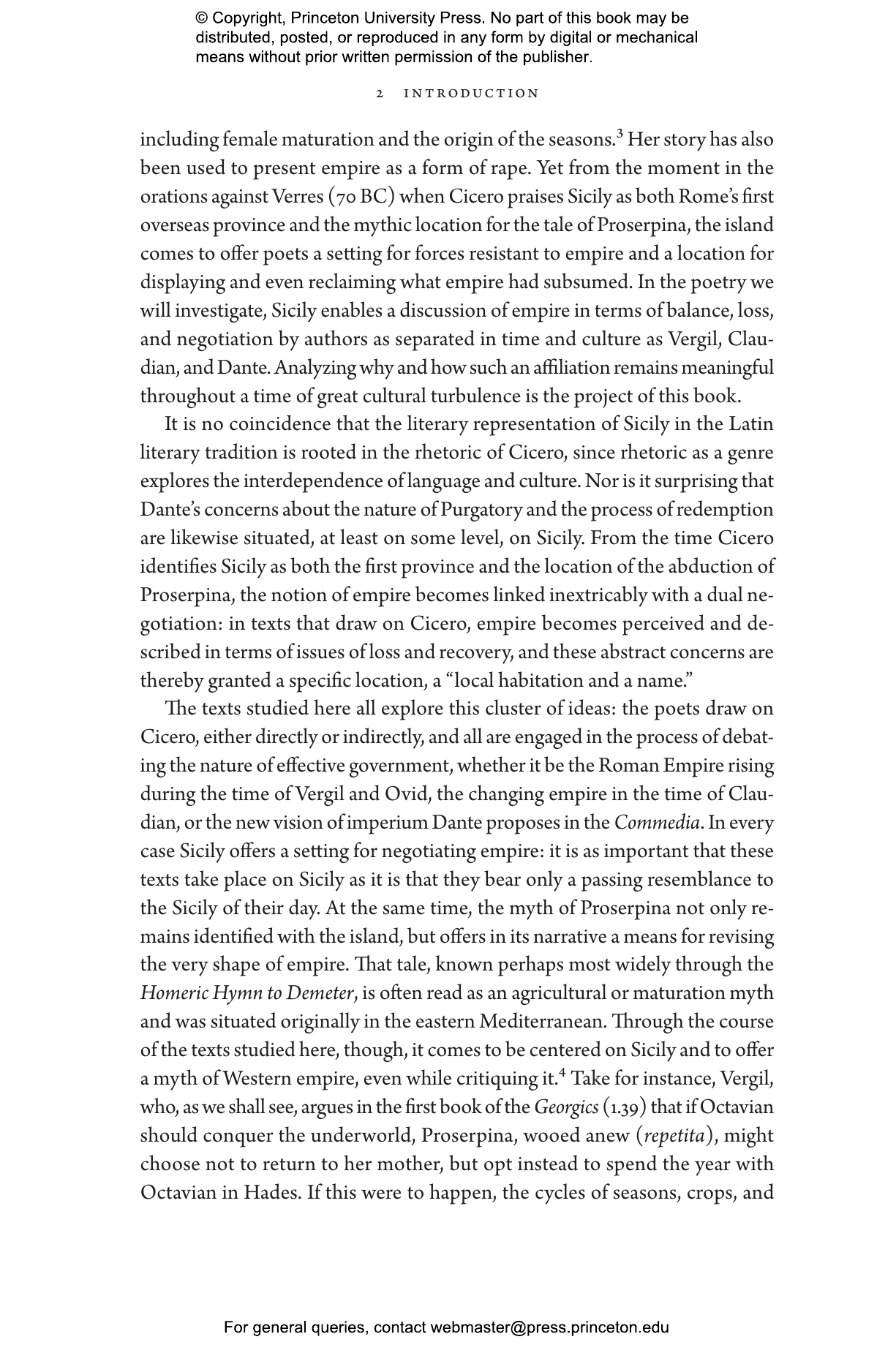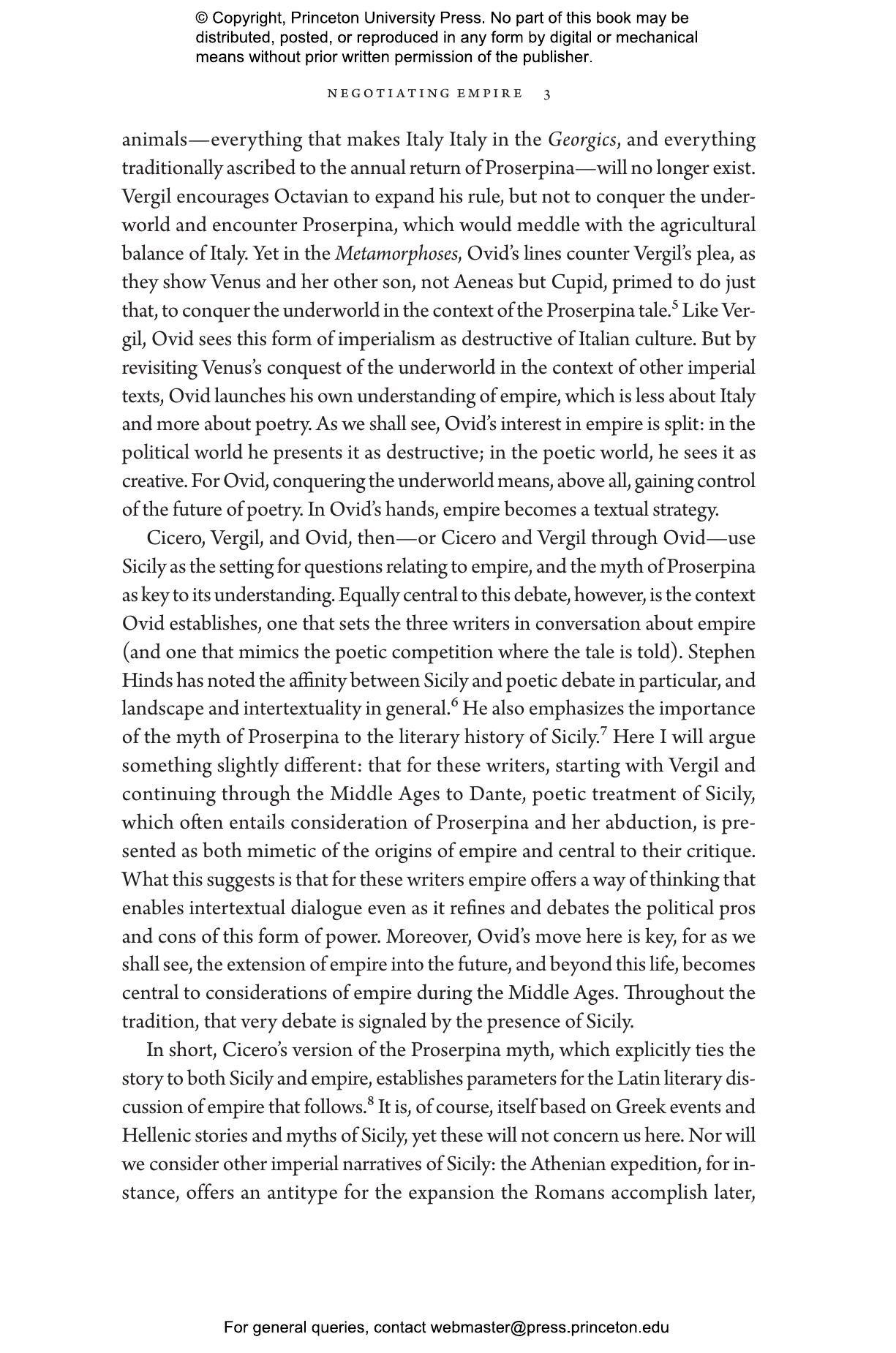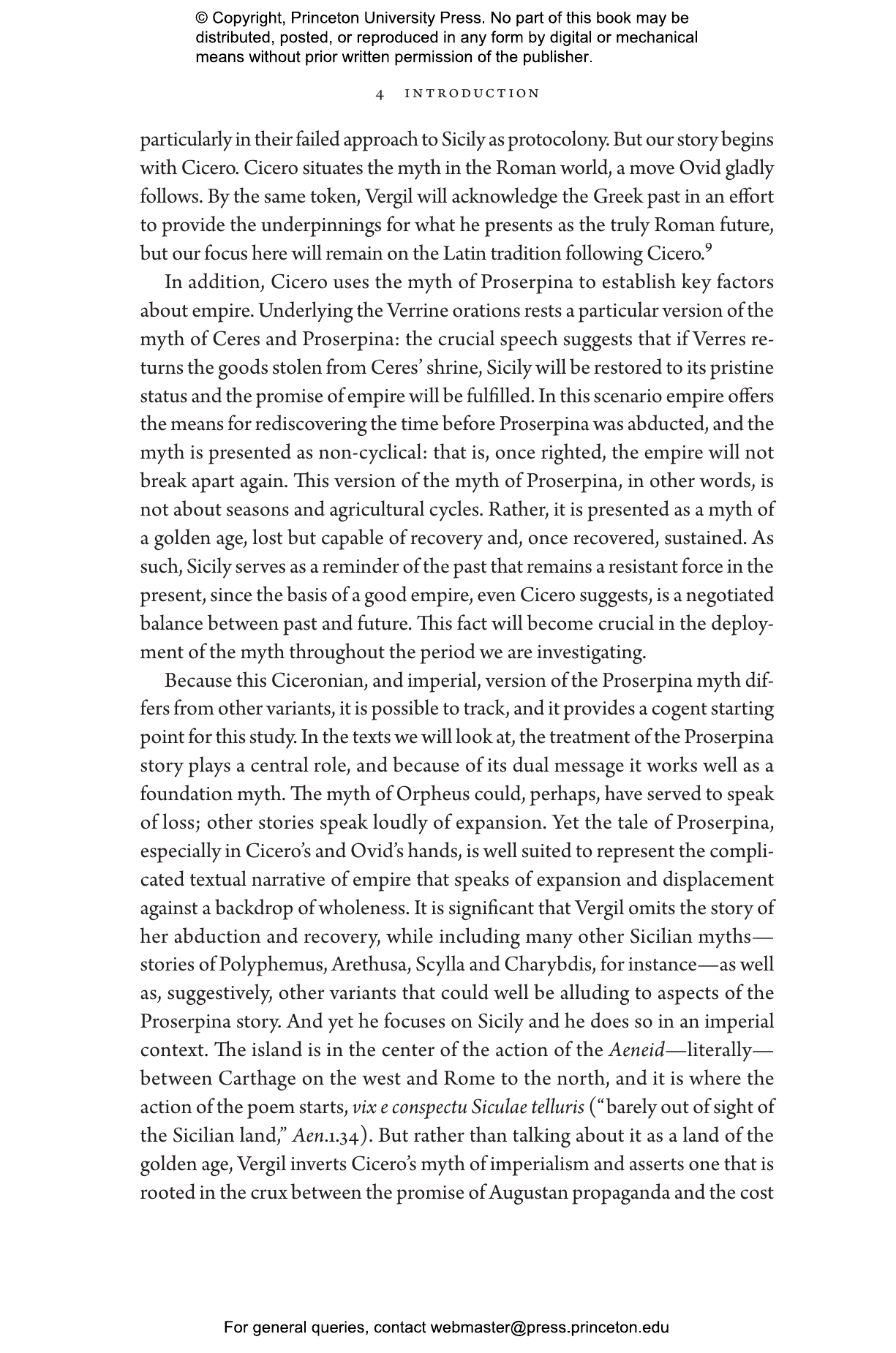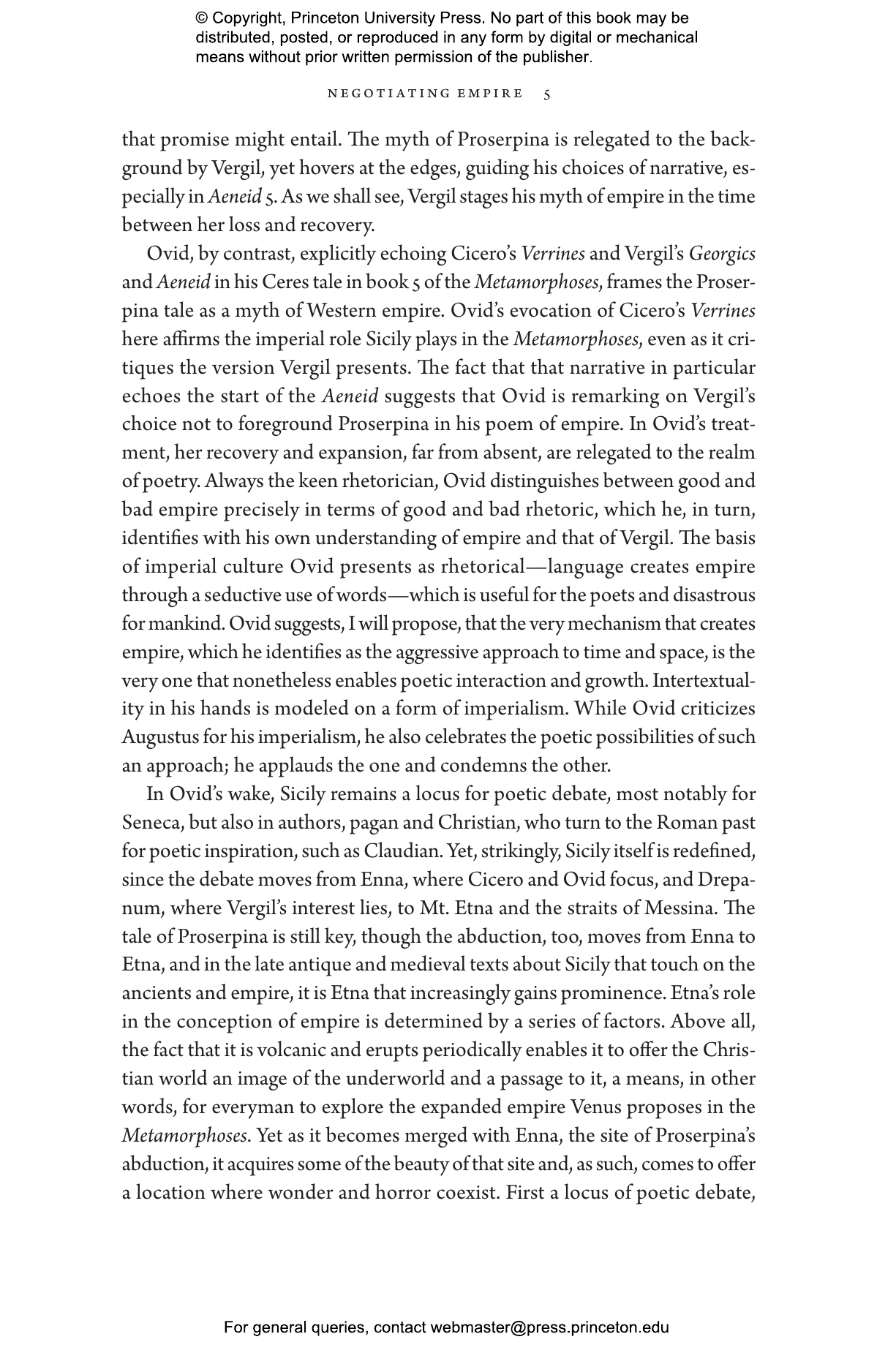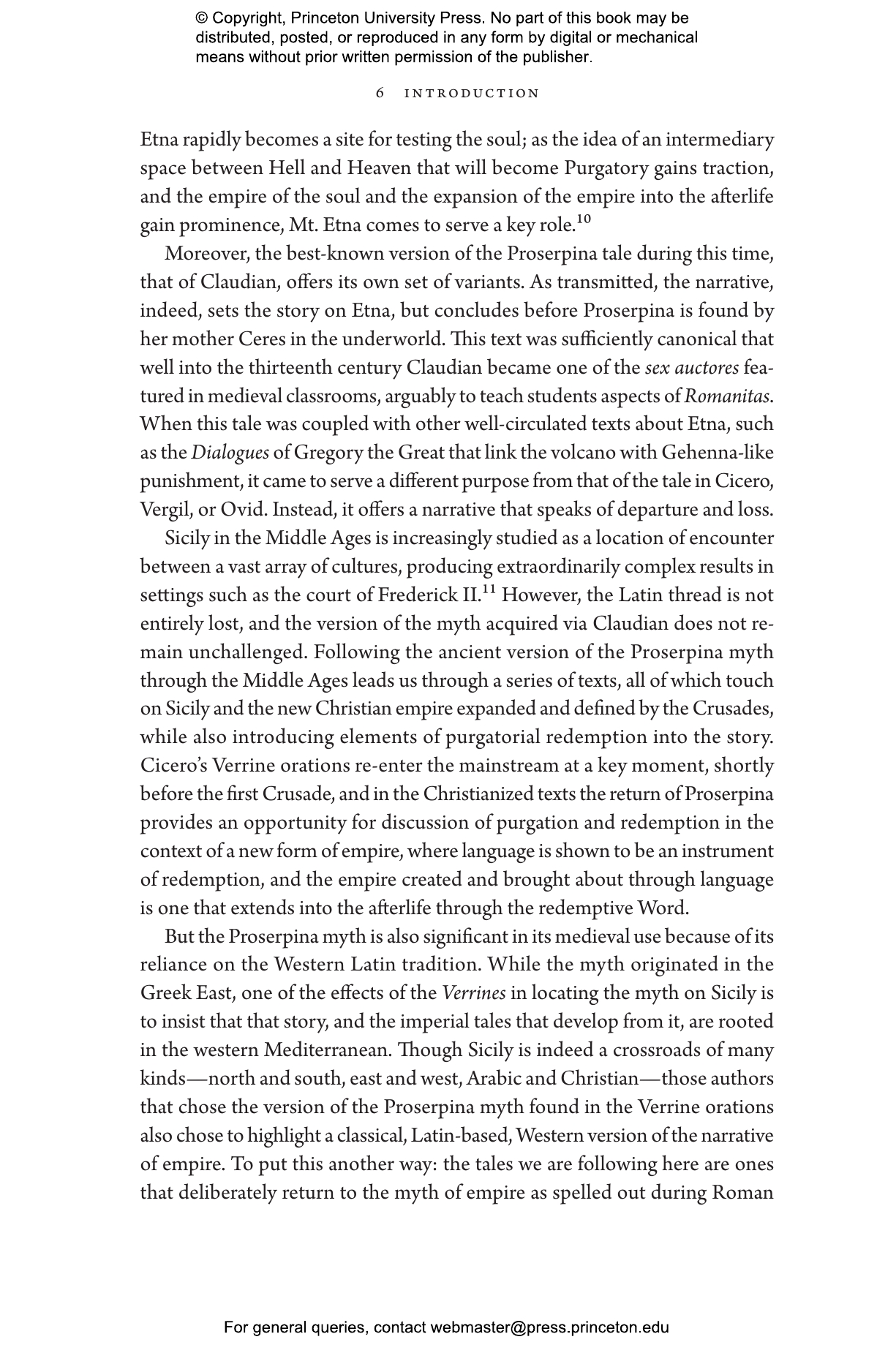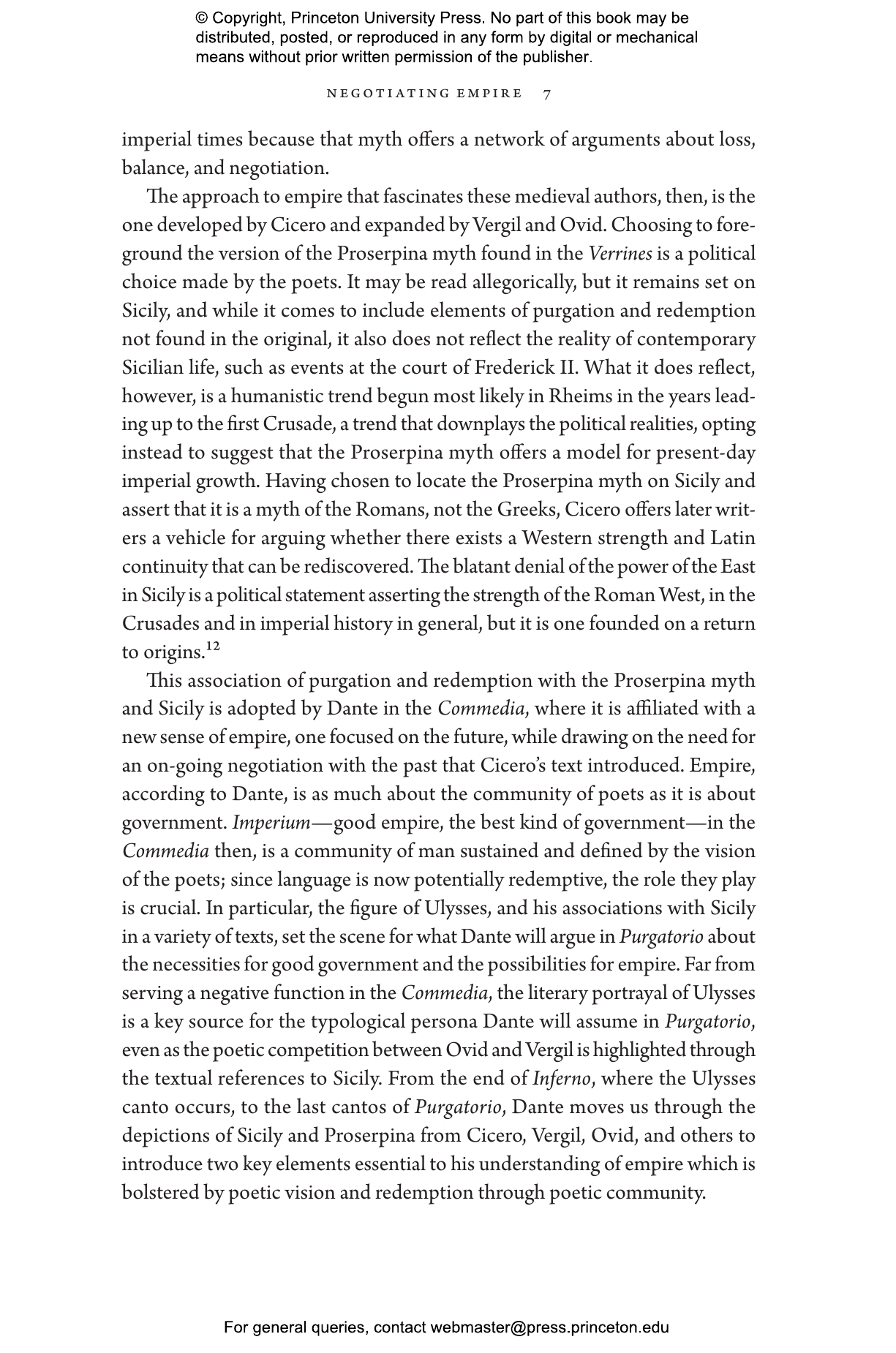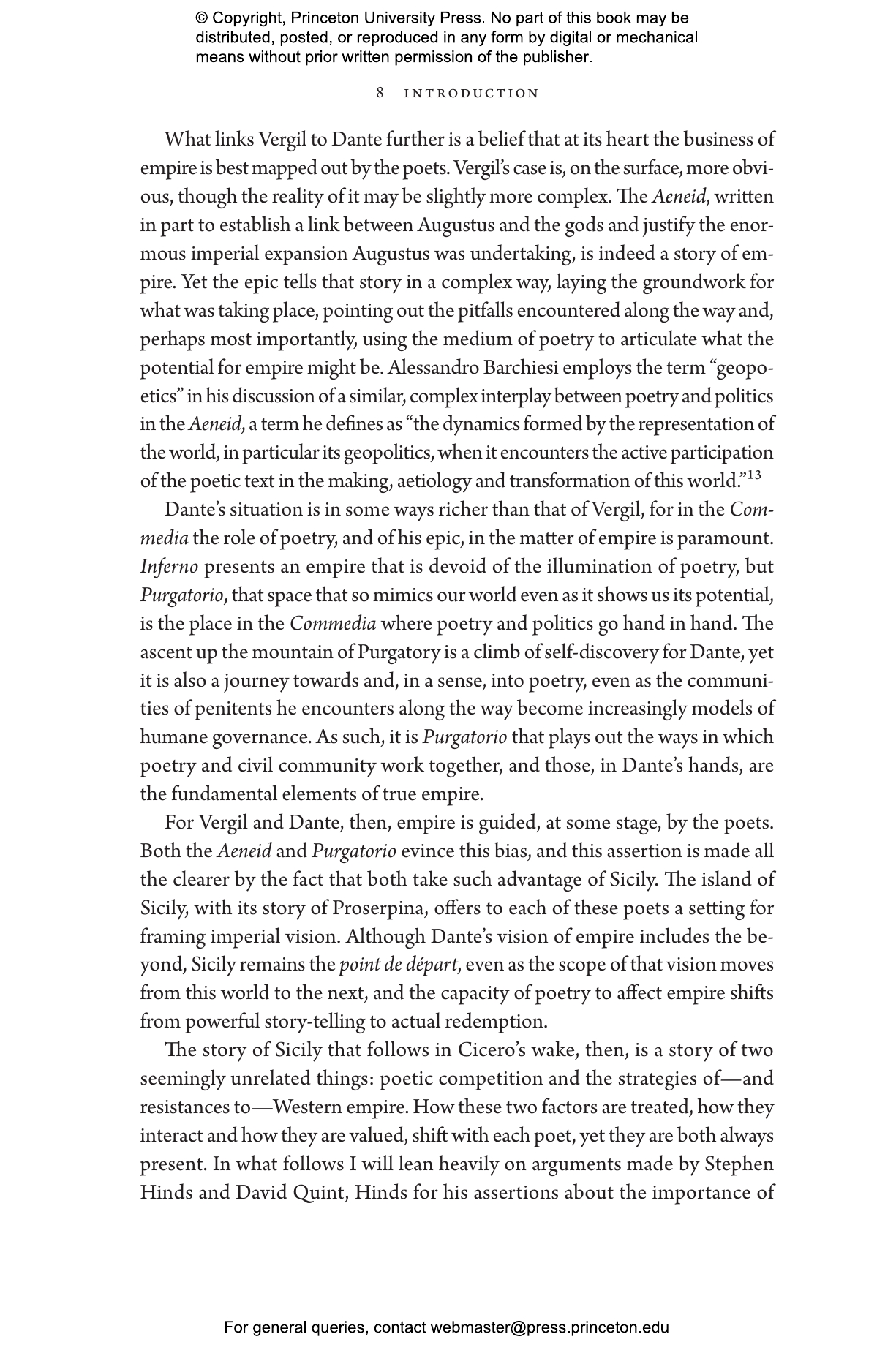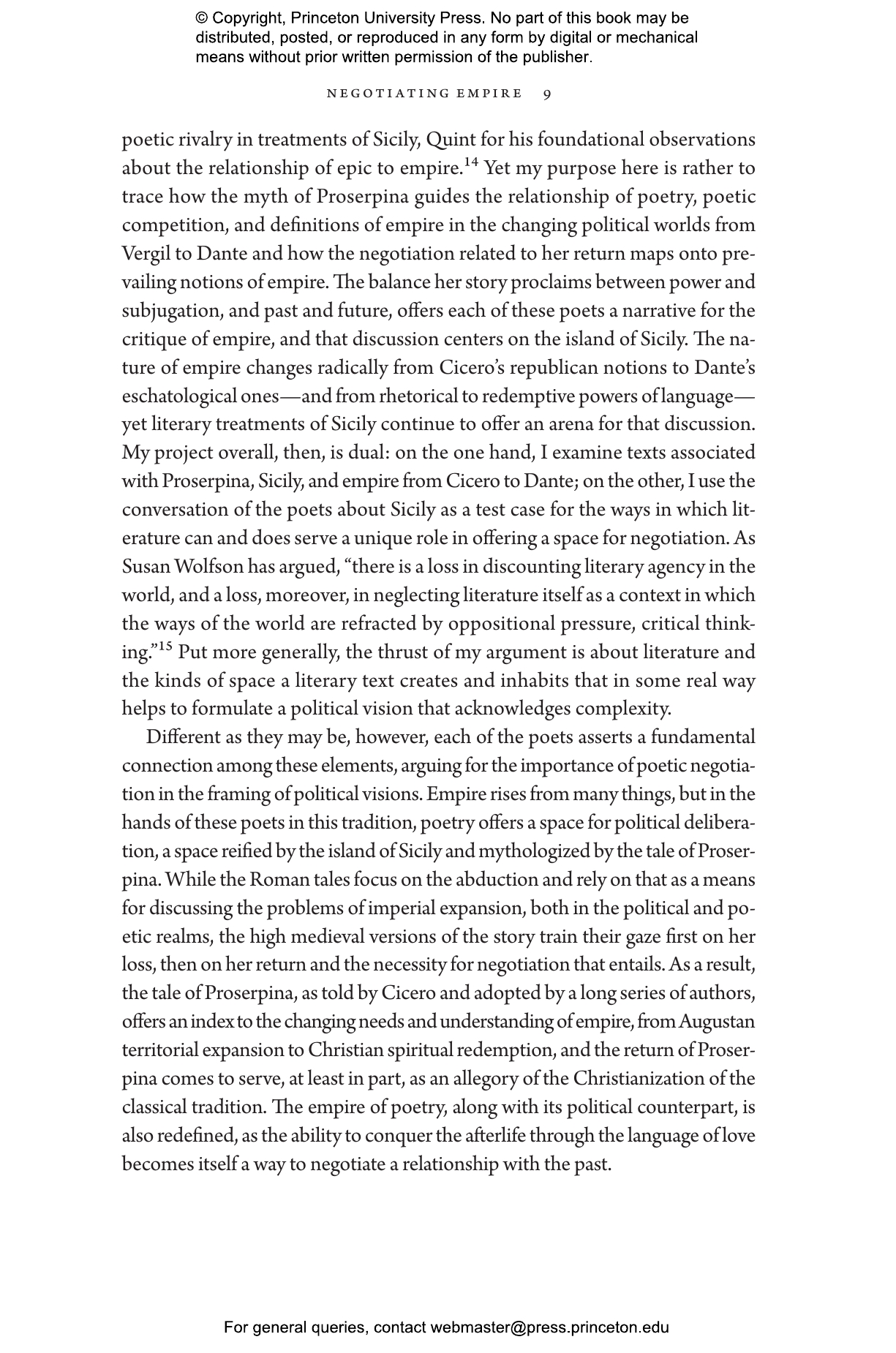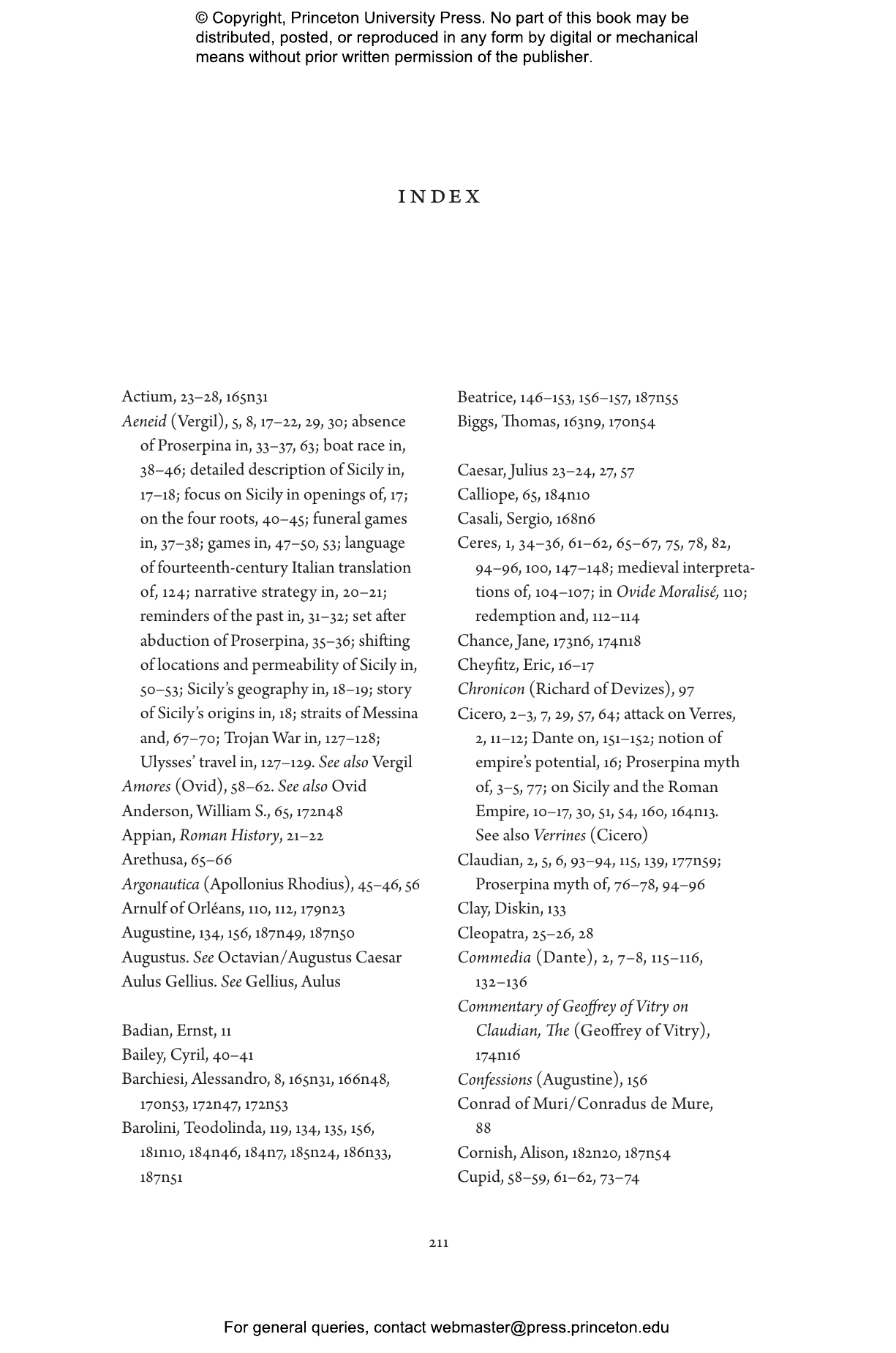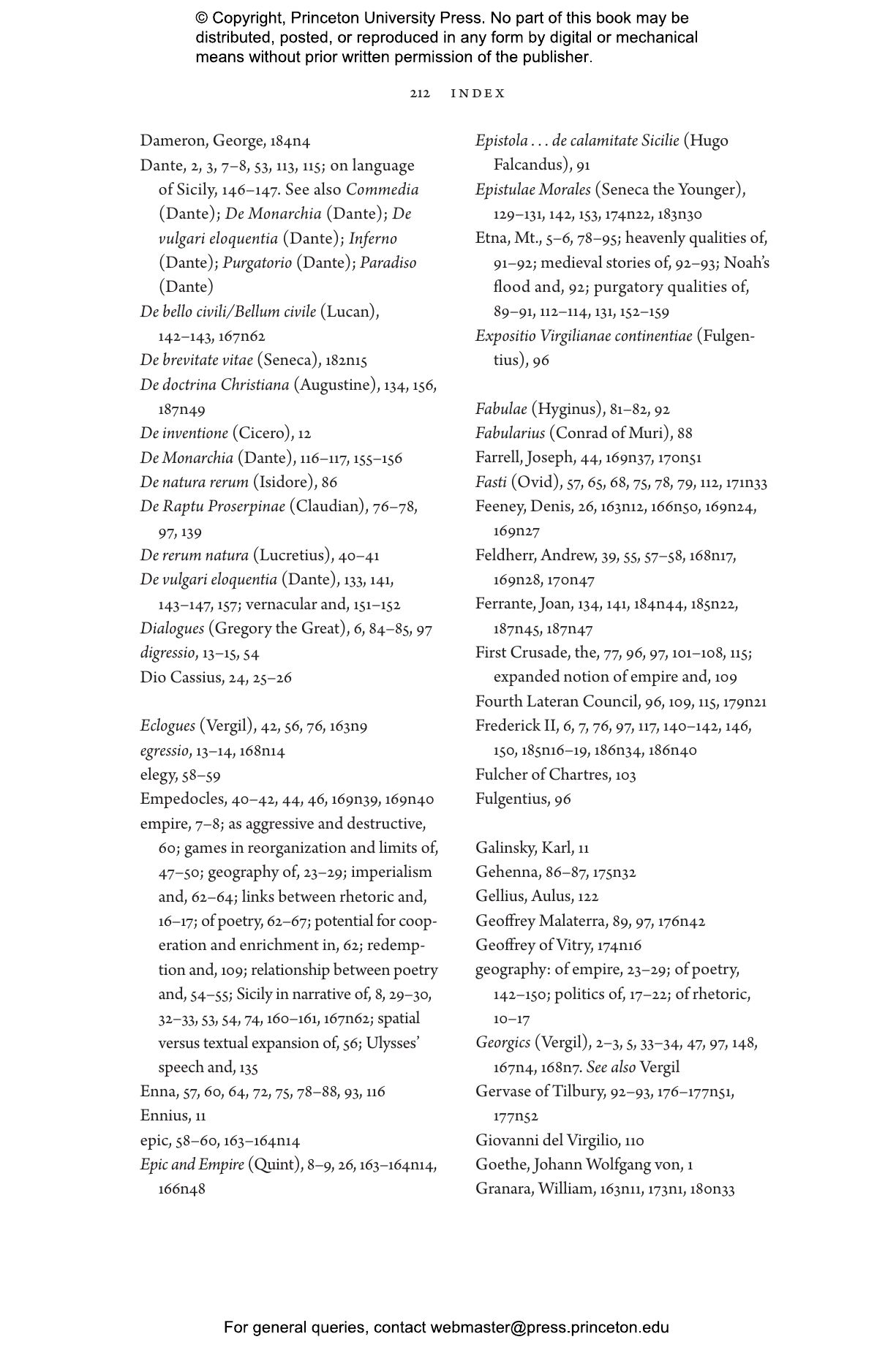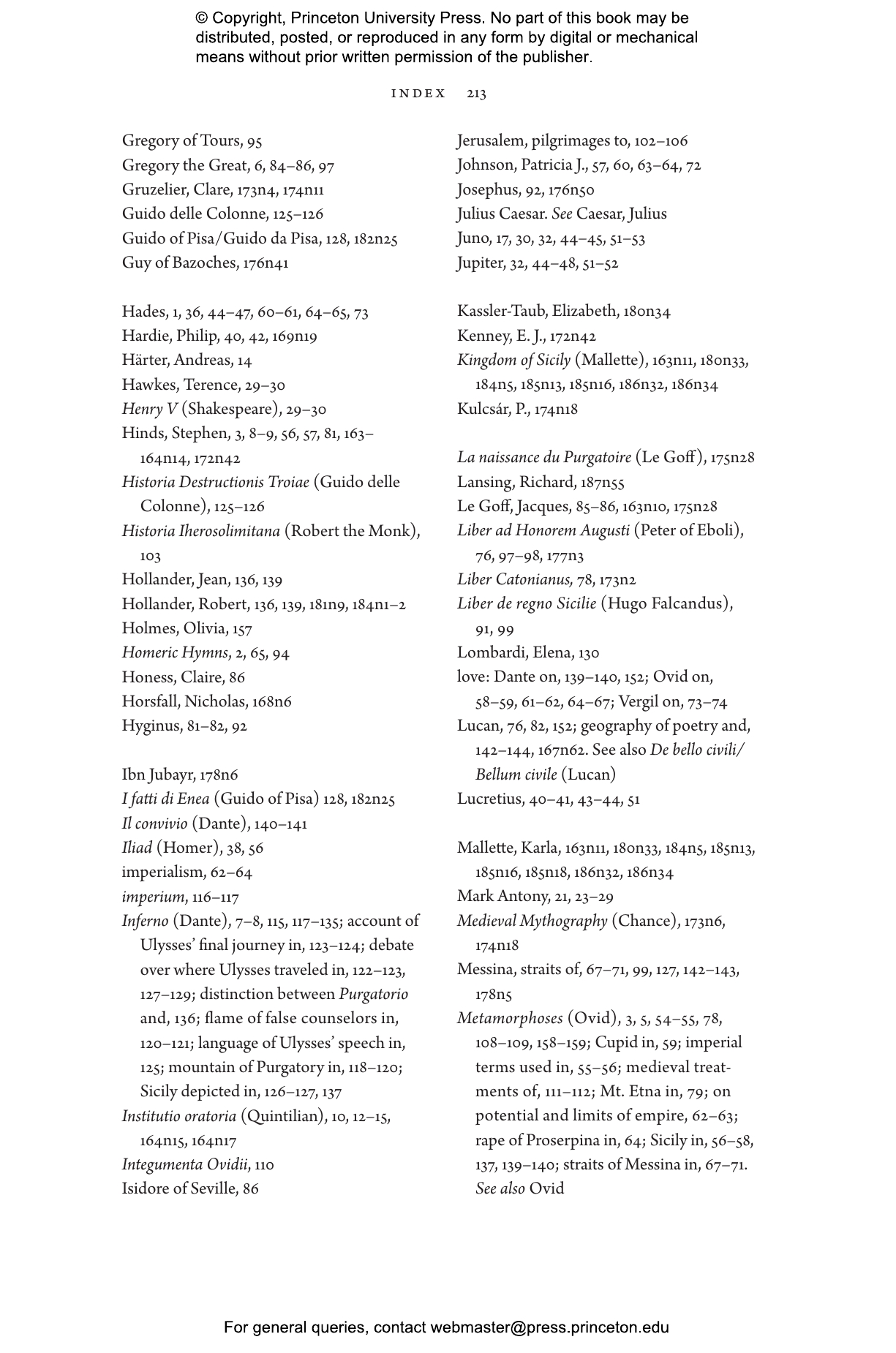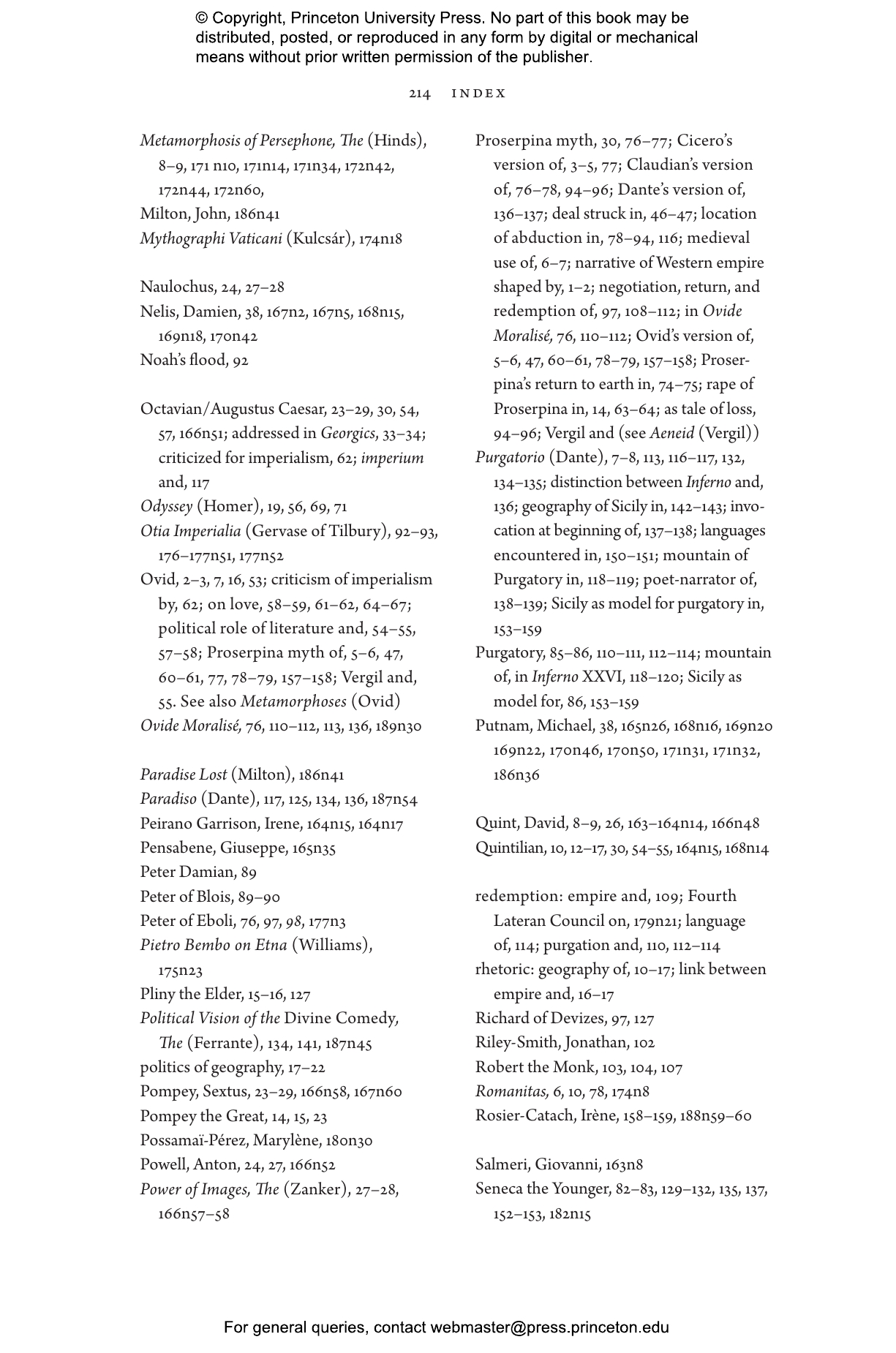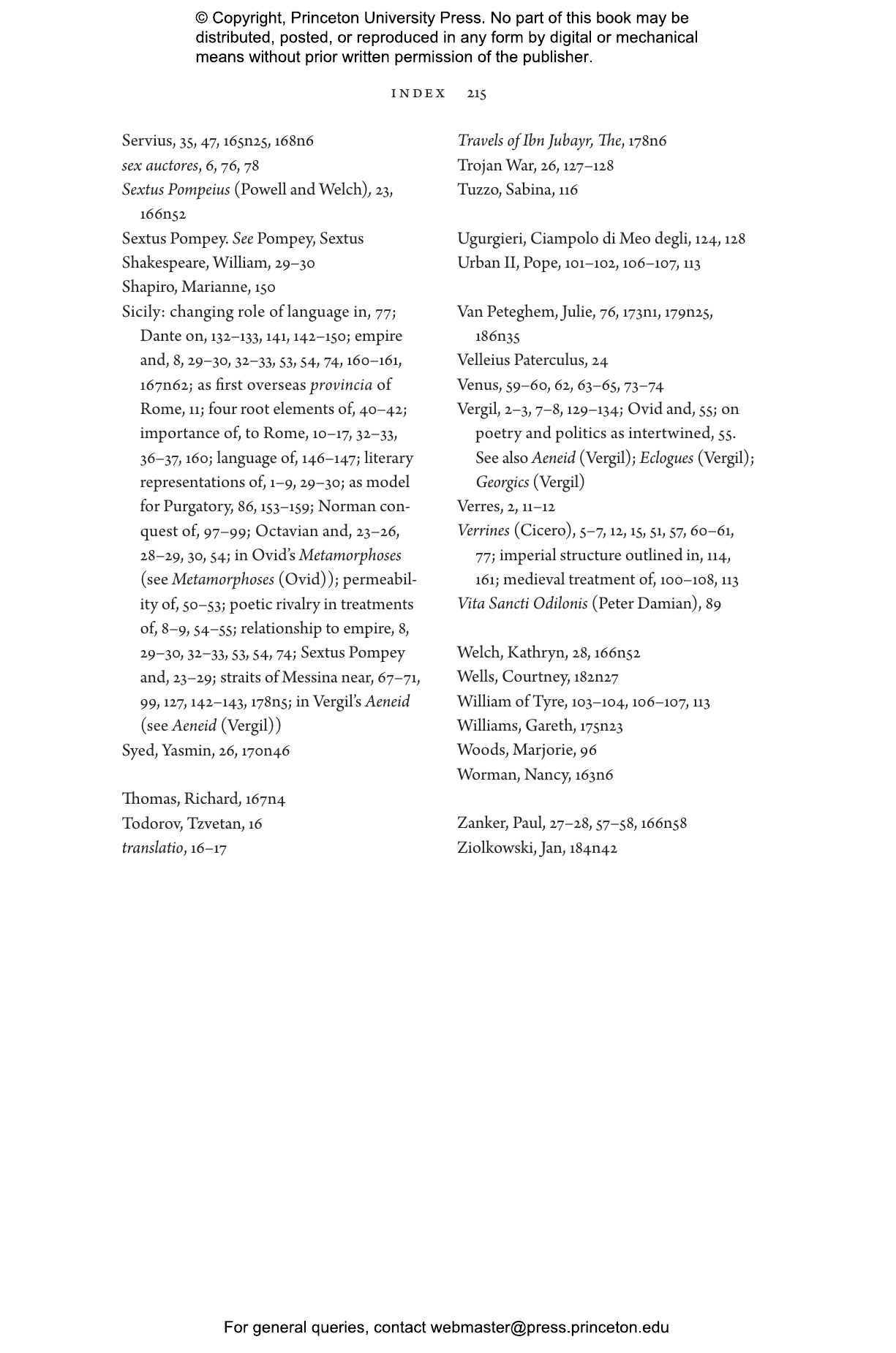The Return of Proserpina: Cultural Poetics of Sicily from Cicero to Dante
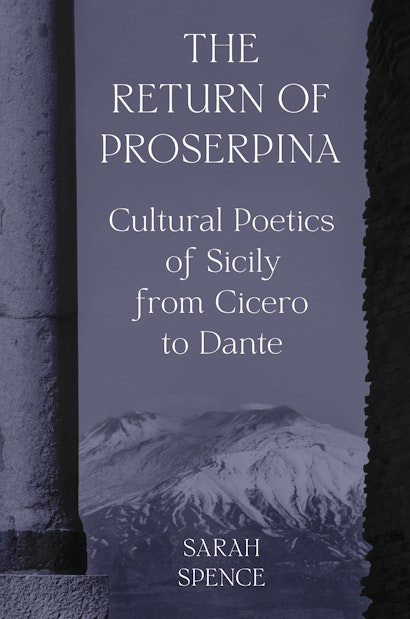

Hardcover
- Price:
- $120.00/£100.00
- ISBN:
- Published (US):
- Jan 3, 2023
- Published (UK):
- Jan 24, 2023
- Copyright:
- 2023
- Pages:
- 232
- Size:
- 6.13 x 9.25 in.
- 3 b/w illus. 1 map.
Paperback
ebook (EPUB via app)
ebook (PDF via app)
In the first century BC, Cicero praised Sicily as Rome’s first overseas province and confirmed it as the mythic location for the abduction of Proserpina, known to the Greeks as Persephone, by the god of the underworld. The Return of Proserpina takes readers from Roman antiquity to the late Middle Ages to explore how the Mediterranean island offered authors a setting for forces resistant to empire and a location for displaying and reclaiming what has been destroyed.
Using the myth of Proserpina as a through line, Sarah Spence charts the relationship Western empire held with its myths and its own past. She takes an in-depth, panoramic look at a diverse range of texts set on Sicily, demonstrating how the myth of Proserpina enables a discussion of empire in terms of balance, loss, and negotiation. Providing new readings of authors as separated in time and culture as Vergil, Claudian, and Dante, Spence shows how the shape of Proserpina’s tale and perceptions of the island change from a myth of loss to one of redemption, with the volcanic Mt. Etna playing an increasingly central role.
Delving into the ways that myth and geography affect politics and poetics, The Return of Proserpina explores the power of language and the written word during a period of tremendous cultural turbulence.
